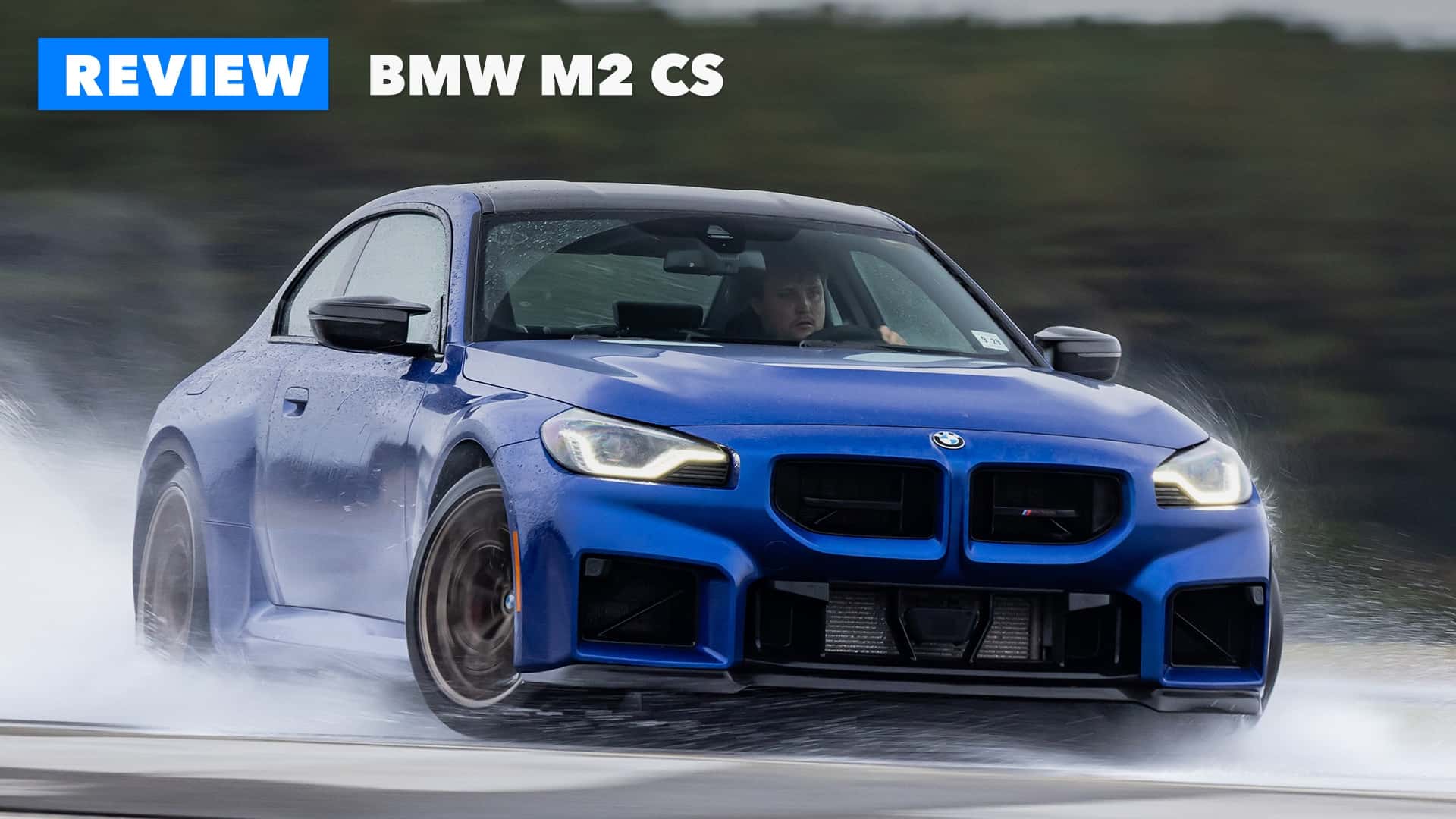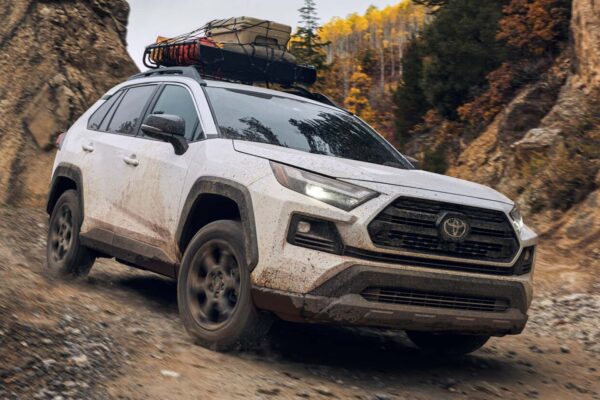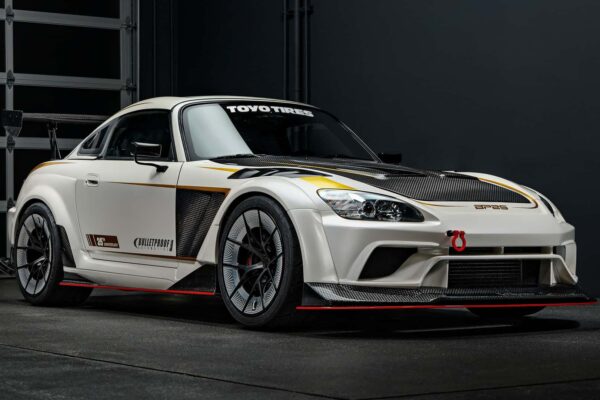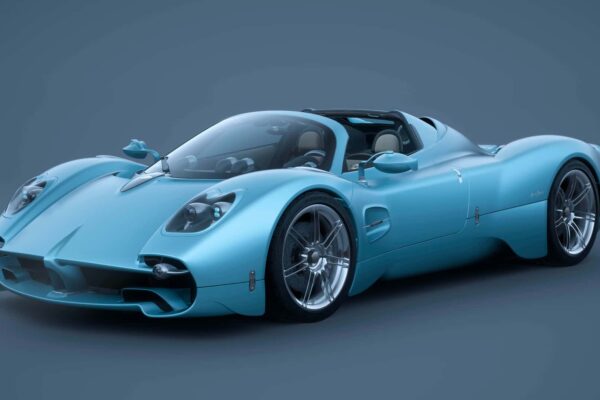With its powerful six-cylinder engine, finely tuned chassis and unmistakably compact, two-door shape, the current G87-generation BMW M2 remains one of the best modern performance cars. It definitely is One of our favourites.
For 2026, BMW is offering the M2 CS, which offers a host of chassis and engine improvements, lower weight, and generous use of carbon fibre. The question is whether this combination of hardware and software improvements is enough to justify its near-$100,000 price tag — about $32,000 more than the base M2.
After a full day of spirited driving – both on the track and on the street – the new M2 CS certainly makes a strong case for itself.
| Quick specifications | 2026 BMW M2 CS |
| engine | Twin-turbocharged 3.0-liter six-cylinder |
| Output | 523 hp / 479 lb-ft |
| 0-60 mph | 3.7 seconds |
| net weight | 3,770 pounds |
| Base price | $99,775 |
The most immediate differences from the standard M model are in the CS’s appearance. The front fascia is wider, more aggressive, and even lower than the grille compared to the standard model. This new face means it can suck in as much air as possible to maintain temperatures via its complex system of oil coolers, radiators and intercooler heat exchanger.
A carbon fiber roof comes standard, as does a carbon rear diffuser and mirror caps. The M2 CS also features a painted ducktail wing that looks very stylish. Finally, lightweight 19-inch front and 20-inch rear wheels fill its fenders, the only options available for the CS from the factory.
In the cabin, deep carbon fiber bucket seats keep front seat occupants well contained. It’s not comfortable for all body types, but it was somewhat comfortable enough for my six-foot-three height and 34-inch waist. They helped maintain the excellent performance driving position. These seats are usually an expensive option on the base model.
Elsewhere, the center console/tunnel has a large piece of carbon fiber and is completely devoid of cup holders. Interestingly though, the huge soda cup from the gas station would fit nicely into the small open compartment at the back of the console – which is ironic, since that was certainly not the designers’ intention.
Photo by: BMW
Pros: Ridiculously powerful, excellent bucket seats, mid-engine-like handling, likes to be sideways
The rest of the interior is filled with carbon fibre. It also features soft leather, chunky piano black plastics, and a light sprinkling of Alcantara throughout.
Out the door, filled with 14 or more gallons, and equipped with standard M brakes with steel rotors, the Diet CS sheds 97 pounds compared to the non-CS model. Not bad, and opting for M Carbon Ceramic brakes ($8,500) nets an extra 40 pounds.
Mechanical differences between the CS and the standard M2 include a mix of parts box upgrades and a combination of ones and zeros. The CS has slightly stiffer spring rates, reducing ride height by 8.0mm. Its alignment is a little richer (BMW employees didn’t have exact numbers on hand). The bushing material, upper suspension caps, control arms, and other common areas of the performance upgrade are the same as the standard model, although it shares its shift mount and dampers with the M4 CSL – the former being found on the M4 GT4 race car as well.
Otherwise, BMW went to town to reprogram the adaptive damper tuning, steering, ABS, throttle mapping, and traction control for more spirited driving.
Photo by: BMW
Cons: A little noisy on the road, expensive
The modifications continue under the hood, where the M2 CS’s twin-turbocharged 3.0-liter S58 six-cylinder produces 523 hp and 479 lb-ft of torque – 50 hp and 36 lb-ft, respectively, over the base model. That’s enough to propel its 3,770-pound body to 60 mph in just 3.7 seconds, and to the quarter-mile mark in 11.7 seconds. The only gearbox available is the brand’s eight-speed automatic – unfortunately, there’s no manual option.
The lion’s share of my evaluation was driving the CS through a high-speed test track and cruising through an autocross track, all at Michelin’s sprawling Laurens Proving Grounds in South Carolina. Its most notable feature: ferocious power delivery.
The standard M2 is no slouch, but the bump in output and revised throttle tuning made the CS more enjoyable and, at times, downright furious, especially when the torque surged at the top of the midrange. Acceleration was brutal, and with traction control fully turned off between the cones, it was easy to modulate the throttle and dance right to the edge of the rear wheel breaking. Or let them. I quickly became addicted to capturing some interesting slides, with the help of a very communicative structure and an excellent directing ratio.
All that body movement was exacerbated by rainy conditions for most of the day, which also helped with knowing BMW’s 10 levels of M traction control. In sub-60-degree conditions and the windshield wipers on full power, turning them up to maximum skid restriction on the long test track made the CS feel confident and stable while ripping along the 275/35 front and 285/30 rear Michelin Pilot Sport 4Ss.
The two quick, gentle sweeps of the track were a mostly foot-down affair, with a modest difference in speed between the wet surface and the mostly dry surface. Plus, I could really feel the differential and electronics finding the perfect amount of output at each wheel for running a particularly slow and technical section. High marks, not only for the programming, but also for the chassis connections.
Overall, modifications have been made to the CS’s suspension and steering for a top-notch experience. Its sharp steering, stiffer springs, and spicier alignment resulted in excellent yaw response; Turn-in was strong, the steering was incredibly direct, yet the muscle coupe never felt strained or strained. Even a short drive down local country roads that were far from smooth glass.
Despite the presence of a fully twin-turbocharged six-cylinder up front, the sum of the M division’s tuning gives it the most mid-engined driving experience across the line-up – the front end is really that light. Refreshingly, the steering wheel conveyed a lot of road texture, although it wasn’t weight-laden enough for my liking in corners on track.
There was no body roll to speak of, and ride quality was decidedly harsher — regardless of driving mode — than the standard model on public roads. But you shouldn’t expect otherwise from this tougher cut. However, any cornering expert will find it perfectly acceptable for weekend and track duty.
Finally, the CS’s furious in-line tendencies are kept in check by six-piston front calipers and single-piston rear calipers pressing down on 15.0-inch front and 14.0-inch rear rotors. Every test car available during the day had the optional carbon ceramic—unfortunately, I wasn’t able to get a feel for the base setup’s strength, mods, or overall power.
But the carbon ceramic worked great, even in such cold and wet conditions. On public roads, they had excellent stopping power with the PS4Ss, and never dug into the ABS, as I nearly missed several turns on the BMW’s designated driving route. On the track, they were exceptional, even though the ambient temperatures were again quite low. Their great initial bite was easy to get used to and transformed into ultra-precise adjustment.
The 2026 BMW M2 CS makes its intentions quite clear; It’s one of the most fun, enthusiast-focused two-door cars I’ve driven in the last couple of years.
$100,000 is certainly a pricey sum for a coupe moving through the same production line as the $67,000 standard edition. But for those who are short on memory: The previous-generation F87 M2 CS started at $87,495 ($109,524 in 2025, depressingly) just five years ago, and only 500 of them were sold in the US.
The G87 costs less dollars by comparison, has more power and significantly more chassis revision at a fraction of the cost on the scales, and has an impressive traction control system to boot. BMW says production will be limited, but has not announced exact numbers yet.
Considering the M2’s price, performance and chassis tuning, two excellent and very enjoyable European sports cars come to mind as direct competitors: the Lotus Emira and the Porsche Cayman GTS (well, while supplies last), although they are mid-engined two-seaters with significantly lower curb weights.
If an enthusiast is looking for exciting twin-turbo power, a traditionally shaped trunk, and a roomier interior with two back seats, cruising around in an M2 CS is definitely worth the six-figure price tag.
2026 BMW M2 CS
engine
Twin-turbocharged 3.0-liter six-cylinder
Output
523 hp / 479 lb-ft
Transition
8 speed automatic
Drive type
Rear wheel drive
Speed 0-60 mph
3.7 seconds
top gear
188 mph
weight
3,770 pounds
Seating capacity
4
Goods size
13.8 cubic feet
Base price
$99,775
For sale
now



